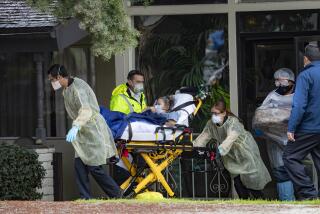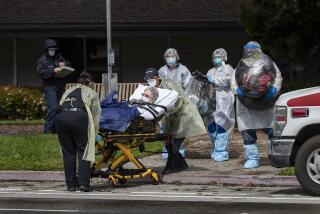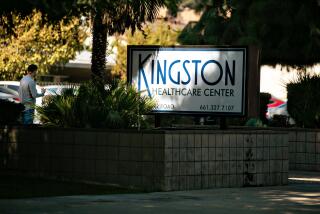Hospitals, nursing homes battle over who should house elderly patients amid pandemic

Carl Schoen’s 99-year-old mother has lived in a nursing home for five years. On March 13, she was taken to the emergency room at Huntington Memorial Hospital in Pasadena with pneumonia.
She got better quickly, within a few days, but now the nursing home won’t take her back because she can’t prove she doesn’t have the coronavirus. She was tested 12 days ago, but the results aren’t back yet.
“They are being very steadfast in saying that until she gets the test result back, she can’t return,” said Schoen, who asked that his mother’s name and the name of the care facility in northeast L.A. not be published for fear of alienating her caregivers.
Across the country, hospitals and nursing homes are stuck in similar high-stakes battles over the fate of older patients amid the coronavirus pandemic.
Hospitals are desperately trying to discharge patients to clear space for an expected wave of COVID-19 victims. But nursing homes are reluctant to accept any new patients — or even returning residents — until it is proved that they are virus-free.
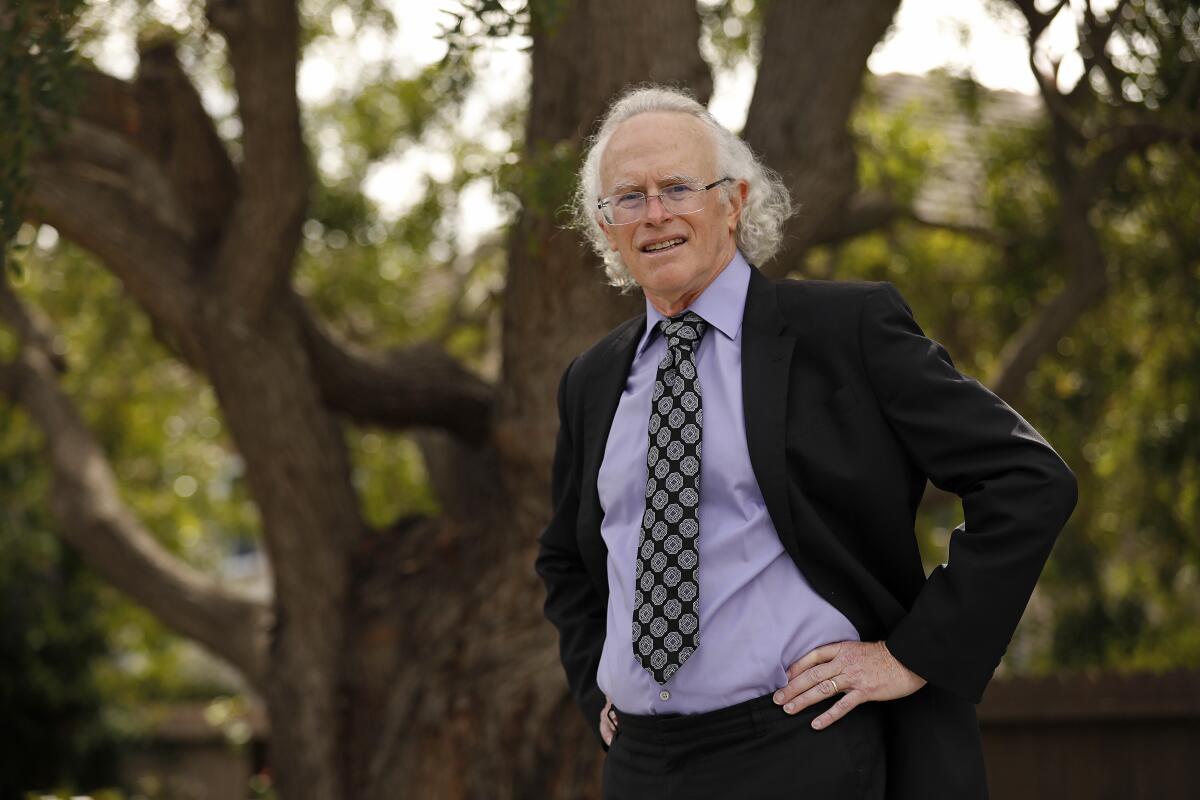
Dr. Michael Wasserman, medical director at a nursing home in Reseda, said he won’t accept any patient returning from a hospital until they have two negative coronavirus tests performed 24 hours apart.
The extreme vulnerability of elderly residents to the novel virus makes taking a patient who might have the highly contagious pathogen “akin to premeditated murder,” he said.
Wasserman pointed to the devastation at the Life Care Center nursing home in Kirkland, Wash., site of one of the first COVID-19 outbreaks in the United States. Two-thirds of the residents and 47 workers fell ill, and 35 people died.
“I’m afraid there will be a minimum of 50 more Kirklands in California before this is done,” Wasserman said.
Wasserman, a geriatrician for more than 30 years and president of the California Assn. of Long Term Medicine, has been in touch with state public health officials regarding advice to nursing homes. Their message, he said, has been unclear and shifting.
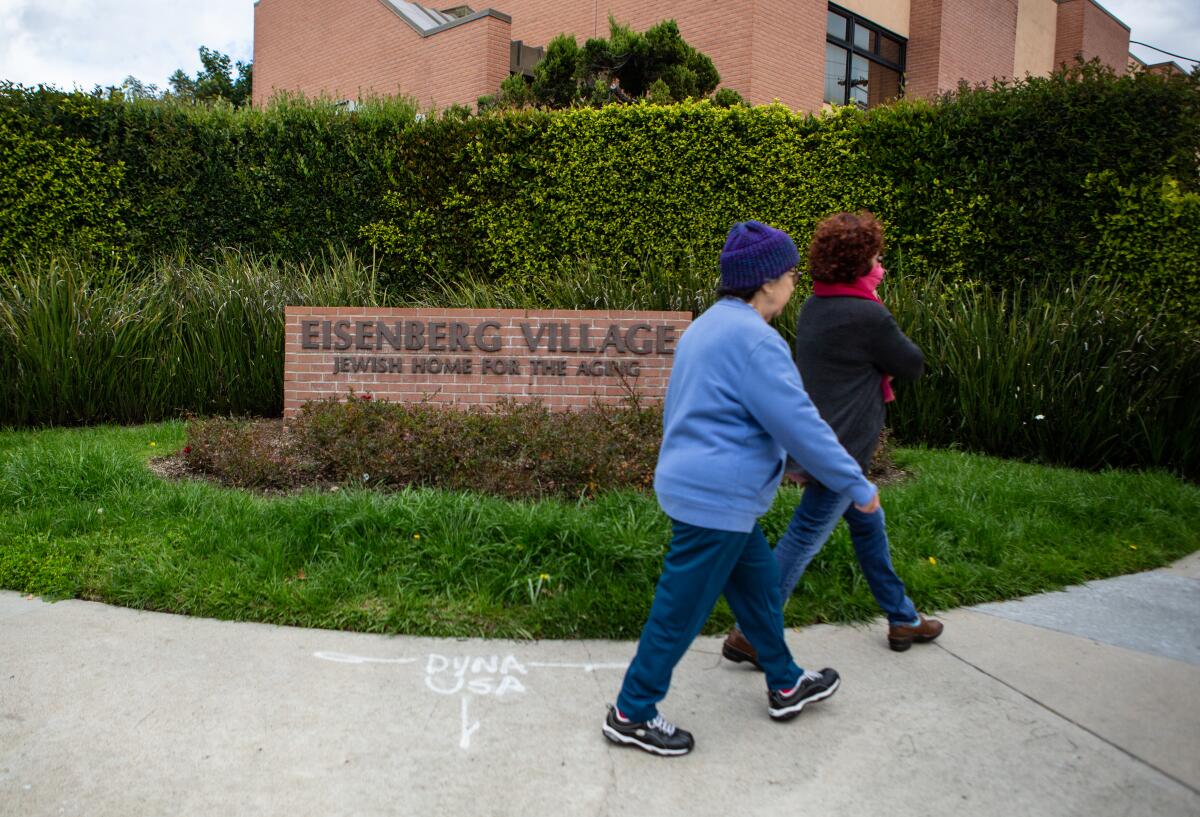
“First, they were telling nursing homes to take patients from hospitals, then they were telling us not to take patients, now there’s conflicting guidance saying be prepared to take them,” Wasserman said.
But Wasserman agrees with doctors who say nursing homes should not send residents to hospitals, even if they have COVID-19 symptoms, unless they are in dire need of care.
“We’ve got a whole strategy on how to deal with this in the skilled nursing facilities,” he said. “If you think someone has it, you have to contain it there. We don’t want to send someone to the hospital unless they really need the ICU.”
Once a patient has gone to the hospital, he said, nursing homes have a moral duty to be sure they are not carrying the virus when they return, especially to a facility with no sign of contamination.
“If I knew someone was trying to send a COVID patient into my nursing home,” Wasserman said, “I would stand in front of the door and say, ‘Hell no, I’m not going to let you do this.’”
The nationwide shortage of tests, and long waits for results, are exacerbating the problem because it can be difficult to prove that a patient who has been in a hospital is completely free of the virus.
Officials at the Los Angeles County Department of Health Services, the second-largest municipal health system in the country, confirmed they are running into this problem.
“DHS has encountered resistance from some skilled nursing facilities in accepting patients who have not definitely tested negative for COVID-19,” said Charmaine Dorsey, director of the department’s Patient & Social Support Services. “This has complicated our efforts to reduce hospital census as we prepare for a surge in patients.”
The health services department cares for more than 2 million people, many of them the poorest and most vulnerable in the county.
The situation is “particularly challenging for DHS as we have many patients with multiple medical and psycho-social comorbidities that make it difficult for us to place our patients in such facilities even in normal circumstances,” Dorsey said.
Dorsey pointed to a letter the California Department of Public Health sent to all nursing homes on March 20 instructing them to “prepare to care for residents with suspected or confirmed COVID-19 infection.”
That guidance is a “recipe for disaster,” said Michael Conners, of the California Advocates for Nursing Home Reform. “It could expose every resident to infection and death.”
Kristen Knapp, a spokeswoman for the Florida Health Care Assn., which represents the vast majority of nursing homes in the state, said hospitals are in a tough spot. But her organization is advising members to be “adamant” about the need for tests for returning residents.
“We care for a very vulnerable population, and so our goal is to do everything we can to keep the virus out of the building. We’re really focused on that,” Knapp said. “If they go out, we’re asking that they’re tested before they come back.”
Not every nursing home in Los Angeles is being so strict.
The Crenshaw Nursing Home sent a resident to the hospital on Friday for a blood transfusion. She came back on Saturday. The home did not require a negative test, said Halem Crowe, director of nurses, but made sure the woman had no coronavirus symptoms.
Since Monday, the home hasn’t sent anyone to the hospital. If a resident needs an IV or an X-ray, they’re getting it at the nursing home, a change made to limit exposure to the coronavirus. “We don’t want our residents to get something outside and bring it here,” Crowe said.
One veteran ER doctor at a community hospital in the Sacramento area, speaking on the condition that his name not be used, said his hospital is being inundated with nursing home residents with minor cold symptoms.
“They cough a few times and they get sent,” he said. And then administrators at the homes refuse to let the patients return without a negative coronavirus test, a process that can take about a week at his hospital, he said.
“They aren’t ill enough to need to be in a hospital,” said the doctor, who called the patients “a massive drain” at a time when hospital staff are girding for a wave of life-and-death coronavirus cases.
Over the weekend, he said, a nursing home sent an elderly woman to the emergency room by ambulance for low-level flu symptoms. Doctors ordered several tests, including coronavirus, and dispatched her back to the home.
The next day, administrators sent her back and said to keep her until the hospital could prove she didn’t have the virus. The doctor said he had no choice but to admit her.
“That’s six days of nursing care and a bed for somebody who just really needed to be separated from others,” he said. “If [the woman] lived at home, I would say, ‘Go home and put yourself in the bedroom and have some chicken soup.’”
He said that even if some of the patients ended up testing positive, the hospital should be reserved only for those with trouble breathing and other severe conditions.
“There’s no downside for these facilities to call 911. They get a person out of their facility for five hours minimum and lighten staffing,” he said.
Nearly two weeks after she took the coronavirus test, Carl Schoen‘s mother — who is blind and suffers from hearing loss — remains trapped at the hospital, in a negative-pressure isolation room reserved for COVID patients. He said she can’t have visitors and has to be restrained at times to prevent falls.
A nurse told the family Wednesday that she clearly does not have COVID, Schoen said. That afternoon, a doctor informed Schoen’s family that the specimen sent to the lab had been lost. Results from a new test would take at least three days.
The situation is “crazy,” Schoen said: “I’ve got a hospital room they can put a real coronavirus patient in.”
More to Read
Start your day right
Sign up for Essential California for news, features and recommendations from the L.A. Times and beyond in your inbox six days a week.
You may occasionally receive promotional content from the Los Angeles Times.
